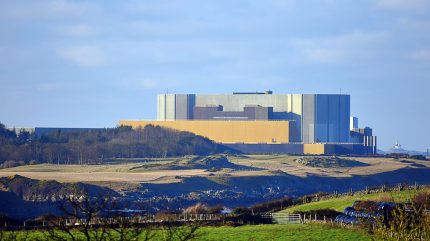
The UK government has confirmed Wylfa on Anglesey in North Wales will host the country’s first small modular reactor (SMR) nuclear power station.
The government has allocated more than £2.5bn ($3.28bn) for this project.

Discover B2B Marketing That Performs
Combine business intelligence and editorial excellence to reach engaged professionals across 36 leading media platforms.
Great British Energy – Nuclear and Rolls Royce SMR are engaged in contractual negotiations. Additional investment will be confirmed to finish the first phase once these discussions conclude.
The planned SMRs are designed to be smaller and constructed in a shorter time frame compared to some conventional nuclear power stations.
These reactors are intended to supply electricity for approximately three million homes as part of efforts to increase domestic energy production in the UK.
The project is linked with objectives that include providing energy for public health services, national security needs, and technology development across the country.

US Tariffs are shifting - will you react or anticipate?
Don’t let policy changes catch you off guard. Stay proactive with real-time data and expert analysis.
By GlobalDataUK Prime Minister Keir Starmer said: “Britain was once a world-leader in nuclear power, but years of neglect and inertia has meant places like Anglesey have been let down and left behind.
“Today, that changes. We’re using all the tools in our armoury – cutting red tape, changing planning laws, and backing growth – to deliver the country’s first SMR in North Wales.
“This government isn’t just reversing decline, it’s delivering thousands of futureproofed jobs, driving billions in investment, and providing cheaper energy bills in the long term.”
The plan is to install three Rolls Royce reactors at the site during the initial stage, with the potential to add up to five more reactors in future.
The SMRs use factory-made modules assembled on location.
The development aims to provide around 3,000 jobs to the community at the peak of construction.
The selection of Wylfa follows a history of efforts to bring new nuclear facilities to North Wales and builds on the area’s heritage with nuclear technology since the 1960s.
Great British Energy – Nuclear will commence work on the site beginning in 2026.
Project leaders anticipate that these reactors will begin supplying power to the grid by the mid-2030s.
Great British Energy – Nuclear chair Simon Bowen said: “These first SMRs at Wylfa will lay the groundwork for a fleet-based approach to nuclear development, strengthening the UK’s energy independence and bringing long-term investment to the local economy.”
As part of a broader strategy, the government has pledged significant funding for nuclear projects nationwide, including investment in large-scale reactors such as Sizewell C, alongside other local economic measures in North Wales.
In addition to the announcement, Great British Energy – Nuclear has been tasked with identifying further potential sites across the UK for future large-scale reactor projects.
Findings from this review are expected by late 2026 and will inform subsequent policy decisions within future spending reviews.
The government is also reinforcing partnerships with international stakeholders in nuclear power.
According to government figures, these partnerships contribute towards a target of creating 400,000 extra jobs in clean energy across the UK by 2030, including a projected 15,000 new posts within Wales, in key industries such as plumbing, electrical work, and welding.
Rolls-Royce SMR chief executive Chris Cholerton said: “We are honoured to have the opportunity to establish our UK fleet programme with an initial three units at the Wylfa site.
“We will deliver nuclear power very differently by utilising modularisation and a high level of factory build, therefore minimising the impact on local people from infrastructure delivery. We are excited to be working with the local community to create jobs and growth.”





